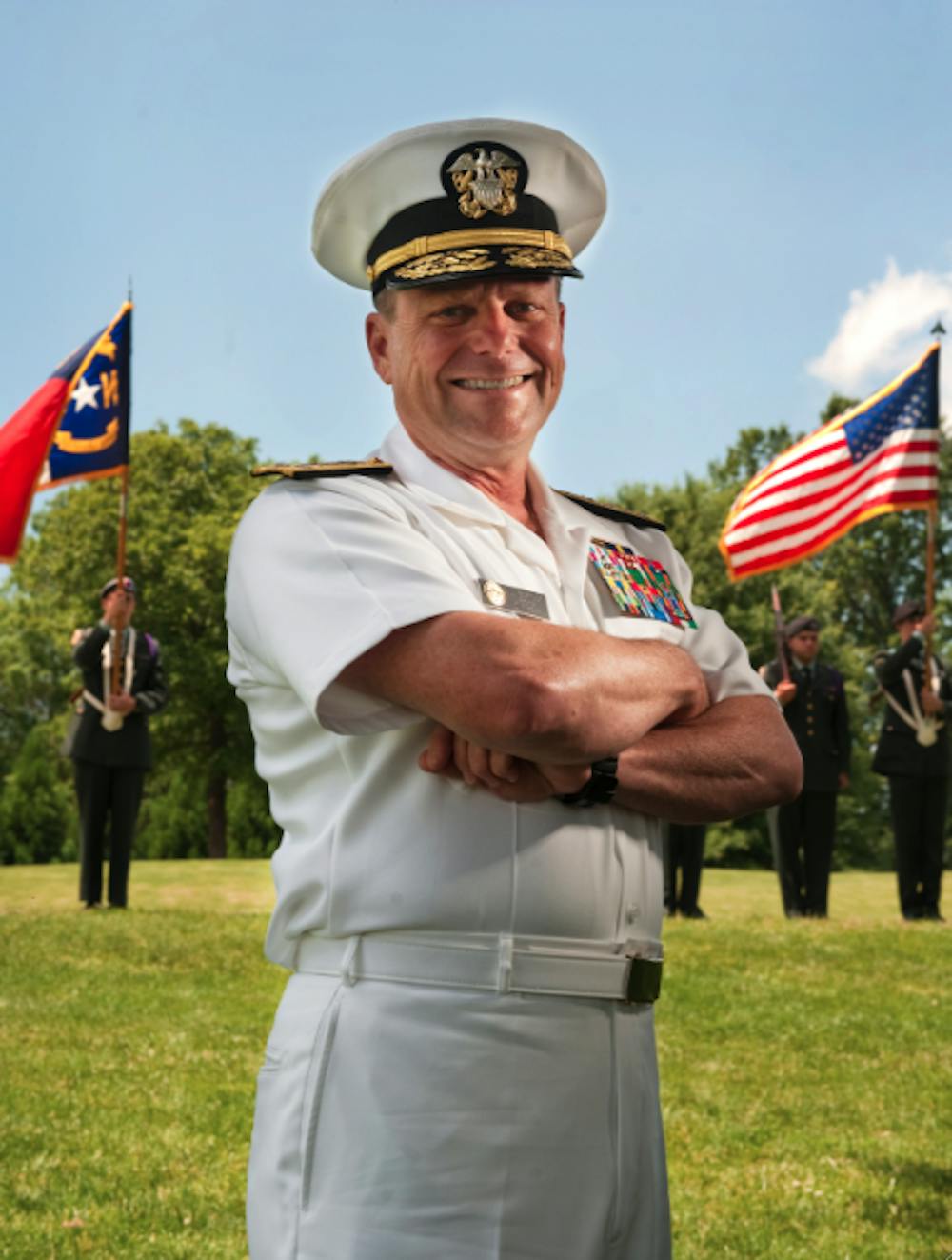Q: How did your history and political science studies guide you in your decisions as a member of the department of defense?
A: Being a student of history makes you have a better understanding of today and being in the Navy and department of defense and living with the challenges of today. I think it's very beneficial, so as we deal with issues around the world, we are also dealing with some of the historical and cultural backgrounds.
Q: What did you envision for yourself when you first graduated from Elon University?
A: I went to Elon thinking I was going to go to law school and about halfway through Elon, I realized I didn't really want to be a lawyer, so I thought about what other opportunities are out there. My father was a Navy officer and Naval Aviator, and growing up, it was something I wanted to do, so I decided to do that. About halfway through my senior year at Elon I found out I was picked up for Aviation Officer Candidate School. I had no intention of making it a career. It was just something I wanted to do until I figured out what I wanted to do with my life. I'm still determining that.
Q: In a previous interview with The Pendulum, you had said "Give back to your society that gave you the opportunities thus far in your life." How has your experience and recent nomination exemplified this idea?
As I can speak for the men and women in uniform who wear the cloth of our nation: we're giving back to that society in a very tangible way, but that is not the only way you can give back to this society. Being teachers, doctors, fireman, coaching Little League, working with cub scouts, being involved in church programs and being a contributor to that society is very important. If the Senate confirms me, I will be lucky enough to serve in uniform for a few more years.
The Senate Armed Service Committee looks at the packages and nominations and sometimes people have to testify to the committee, but once they vote it goes to the Senate floor and then voted on the Senate Floor. It can take three days or three to four months. There is no hard timeline. But we all serve the pleasure of the president once confirmed by the Senate.
Q: How does the nomination contribute to what, during the 121st commencement address, you had titled "Secrets to Guaranteed Wealth?"
A: I continue to try to put that into practical application.
Q: What personal, as well as national goals, will the position help you accomplish, if the nomination is confirmed?
A: My responsibility would be to organize, man, train, equip the naval forces that deploy and help execute our nation's mission. It's a personal passion of mine, working with sailors. That is something else I told the students to do: find your passion.
Q: What would you identify as your most important qualification to head U.S. Fleet Force Command?
A: Oh, I don't know if I am the right person to ask. Chief of Naval Operations thinks I have what it takes to do the job. The secretary of defense and the president agree, so let's hope the Senate will as well. Let's hope my past performance gives them the confidence that I will do a good job.
Q: What do you predict will be the biggest challenge of the new position?
A: With our current defense budget that is based on the strategy that the president and secretary of defense rolled out, there is a huge reduction in the department of defense budget, so it will be a challenge to make sure that we send our sailors on ship and on the missions that the Navy does over seas, and that I will be able to man, train and equip them to the highest standards and do it within budget. That will be the challenge.
Q: How are you preparing to deal with this challenge?
A: There is one thing that we do. We can never presuppose confirmation of the Senate. I hope to go down there and take command, but nothing is certain until the Senate confirms this and then I have a change command and assume command. Currently my days are pretty busy just doing my current job.
Q: How well do you feel your previous experience has prepared you for these new challenges?
A: Recognition of the dynamics of why we have a reduced budget and having spent as much time in the fleet and overseas working in the joint world, I think I have a pretty good idea of those challenges. Working with great shipmates, like I know I have on the staff, we'll figure out a way to do it together.


